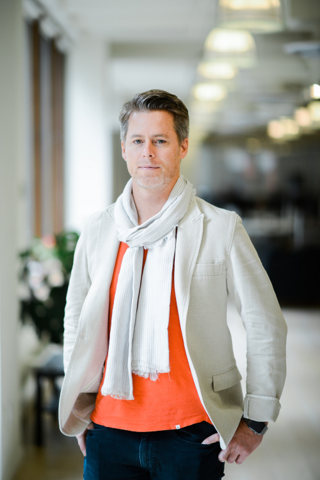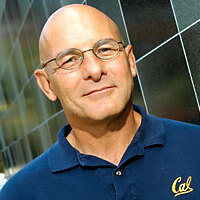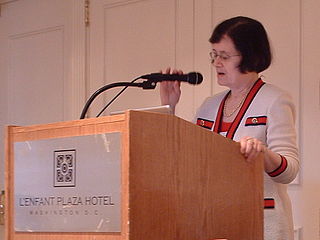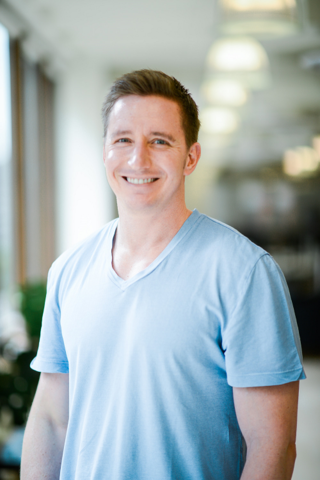The Association for Computing Machinery (ACM) is a US-based international learned society for computing. It was founded in 1947 and is the world's largest scientific and educational computing society. The ACM is a non-profit professional membership group, reporting nearly 110,000 student and professional members as of 2022. Its headquarters are in New York City.

The University of California, Berkeley is a public land-grant research university in Berkeley, California. Founded in 1868 and named after Anglo-Irish philosopher George Berkeley, it is the state's first land-grant university and the founding campus of the University of California system. Berkeley is also a founding member of the Association of American Universities. It has been regarded as one of the top universities in the world.

John Kenneth Ousterhout is a professor of computer science at Stanford University. He founded Electric Cloud with John Graham-Cumming. Ousterhout was a professor of computer science at University of California, Berkeley where he created the Tcl scripting language and the Tk platform-independent widget toolkit, and proposed the idea of coscheduling. Ousterhout led the research group that designed the experimental Sprite operating system and the first log-structured file system. Ousterhout also led the team that developed the Magic VLSI computer-aided design (CAD) program.

The School of Computer Science (SCS) at Carnegie Mellon University in Pittsburgh, Pennsylvania, US is a school for computer science established in 1988. It has been consistently ranked among the top computer science programs over the decades. As of 2022 U.S. News & World Report ranks the graduate program as tied for second with Stanford University and University of California, Berkeley. It is ranked second in the United States on Computer Science Open Rankings, which combines scores from multiple independent rankings.
The University of California, Berkeley College of Engineering is the engineering school of the University of California, Berkeley. The college occupies fourteen buildings on the northeast side of the main campus and also operates the 150-acre (61-hectare) Richmond Field Station. Established in 1931, the college is considered to be one of the most prestigious and selective engineering schools in both the nation and the world.

Spencer Kimball is an American computer programmer, entrepreneur, and business executive. He is the CEO of Cockroach Labs, a company he co-founded in 2014. His work as a programmer includes creating GNU Image Manipulation Program (GIMP) while still in college, and assisting the source code development of CockroachDB, the namesake software of Cockroach Labs. In addition to Cockroach Labs, Kimball was involved in the founding of other tech startups including WeGo and Viewfinder.
Pei-Yuan Wei is a Taiwanese-American businessman who created ViolaWWW, the first popular graphical web browser.

ViolaWWW is a discontinued web browser, the first to support scripting and stylesheets for the World Wide Web (WWW). It was first released in 1991/1992 for Unix and acted as the recommended browser at CERN, where the WWW was invented, but eventually lost its position as most frequently used browser to Mosaic.
XCF, short for eXperimental Computing Facility, is the native image format of the GIMP image-editing program. It saves all of the data the program handles related to the image, including, among others, each layer, the current selection, channels, transparency, paths and guides.

David Andrew Patterson is an American computer pioneer and academic who has held the position of professor of computer science at the University of California, Berkeley since 1976. He announced retirement in 2016 after serving nearly forty years, becoming a distinguished software engineer at Google. He currently is vice chair of the board of directors of the RISC-V Foundation, and the Pardee Professor of Computer Science, Emeritus at UC Berkeley.

Barbara Bluestein Simons is an American computer scientist and the former president of the Association for Computing Machinery (ACM). She is a Ph.D. graduate of the University of California, Berkeley and spent her early career working as an IBM researcher. She is the founder and former co-chair of USACM, the ACM U.S. Public Policy Council. Her main areas of research are compiler optimization, scheduling theory and algorithm analysis and design.

Peter Mattis is an American computer programmer, entrepreneur, and business executive. He is the CTO and co-founder for Cockroach Labs, a company he co-founded in 2014. His work as a programmer includes launching GNU Image Manipulation Program (GIMP) while still in college, and assisting the source code development of CockroachDB, the namesake software of Cockroach Labs.
Gene Kan was a British-born Chinese American peer-to-peer file-sharing programmer who was among the first programmers to produce an open-source version of the file-sharing application that implemented the Gnutella protocol. Kan worked together with Spencer Kimball on the program called "gnubile" licensed under the GNU General Public License. Kan graduated from the University of California, Berkeley in 1997 with a major in electrical engineering and computer science, and was a member of the student club the eXperimental Computing Facility (XCF).

Jonathan Blow is an American video game designer and programmer. He is best known for his work on the independent video games Braid (2008) and The Witness (2016). Blow was born in California, United States, and became interested in game programming while at middle school. He studied for computer science and English at the University of California, Berkeley, but dropped out to start a game company. After the company closed following the dot-com crash, Blow worked as a game-development contractor. He co-founded the Experimental Gameplay Workshop and wrote a monthly technical column for Game Developer magazine.

The National Energy Research Scientific Computing Center (NERSC), is a high-performance computing (supercomputer) National User Facility operated by Lawrence Berkeley National Laboratory for the United States Department of Energy Office of Science. As the mission computing center for the Office of Science, NERSC houses high performance computing and data systems used by 9,000 scientists at national laboratories and universities around the country. Research at NERSC is focused on fundamental and applied research in energy efficiency, storage, and generation; Earth systems science, and understanding of fundamental forces of nature and the universe. The largest research areas are in High Energy Physics, Materials Science, Chemical Sciences, Climate and Environmental Sciences, Nuclear Physics, and Fusion Energy research. NERSC's newest and largest supercomputer is Perlmutter, which debuted in 2021 ranked 5th on the TOP500 list of world's fastest supercomputers.

Avi Wigderson is an Israeli computer scientist and mathematician. He is the Herbert H. Maass Professor in the school of mathematics at the Institute for Advanced Study in Princeton, New Jersey, United States of America. His research interests include complexity theory, parallel algorithms, graph theory, cryptography, distributed computing, and neural networks. Wigderson received the Abel Prize in 2021 for his work in theoretical computer science. He also received the 2023 Turing Award for his contributions to the understanding of randomness in the theory of computation.

The Donald Bren School of Information and Computer Sciences, also known colloquially as UCI's School of ICS or simply the Bren School, is an academic unit of University of California, Irvine (UCI), and the only dedicated school of computer science in the University of California system. Consisting of nearly three thousand students, faculty, and staff, the school maintains three buildings in the southeast section of UCI's undergraduate campus, and maintains student body and research affiliations throughout UCI.

The College of Computing is a college of the Georgia Institute of Technology, a public research university in Atlanta, Georgia. It is divided into four schools: the School of Computer Science, the School of Interactive Computing, the School of Computational Science & Engineering, and the School of Cybersecurity and Privacy. The College of Computing's programs are consistently ranked among the top 10 computing programs in the nation. In 2022, U.S. News & World Report ranked the Computer Science graduate program #6 in the U.S. In 2016, Times Higher Education and the Wall Street Journal ranked the College #5 in the world.
The Computer Science Undergraduate Association is an ASUC funded group at University of California, Berkeley, first founded in 1972. The CSUA's constitution reads:
The purposes of this organization are: to represent the undergraduate computer science student body in dealings with the University of California at Berkeley, its representatives, and any other appropriate organization; to provide a forum for the personal interaction of persons involved in the computer sciences; to promote knowledge of and interest in the computer sciences; and to raise funds to accomplish these goals.












